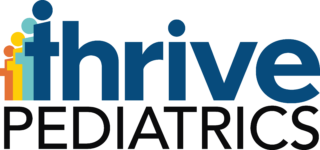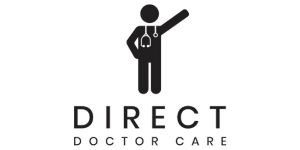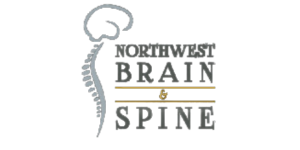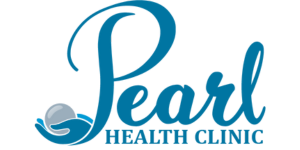
The MedMan Podcast_ Molly Ramsay_Part 1 transcript powered by Sonix—easily convert your audio to text with Sonix.
The MedMan Podcast_ Molly Ramsay_Part 1 was automatically transcribed by Sonix with the latest audio-to-text algorithms. This transcript may contain errors. Sonix is the best audio automated transcription service in 2021. Our automated transcription algorithms works with many of the popular audio file formats.
Jesse Arnoldson:
Welcome to the MedMan podcast, a podcast focused on helping you level up your practice. I'm Jesse Arnoldson.
Jay Holmes:
And I'm Jay Holmes. Through interviews with some of the most successful leaders in the industry. We help uncover resources, tools and ideas to help you level up.
Jesse Arnoldson:
Thanks for tuning in and we hope you enjoy today's program.
Jay Holmes:
Hey, everyone, Jay here with the MedMan podcast. Today, it's our pleasure to welcome Molly Ramsay, MedMan's Corporate Operations Director. Molly is really the glue that holds us all together, and she certainly has huge influence on H.R. And people in the culture and really makes MedMan tick. We also have the pleasure of welcoming Jesse back to do a kind of a Q&A in this episode. We're going to look at hiring and how we can better hire and just really go through some questions and think through some hiring issues. So with that, let's jump right in. Jesse, maybe you can take a stab at this one. I think we all agree at different levels that hiring right people is important. But can you maybe help us really get our heads around why it should be one of our top priorities, if not the top one?
Jesse Arnoldson:
Yeah Jay, absolutely, and it should be the top one, we have too much on our plates at the clinic to have just one person get it done. And so you have to be able to work through your team if you're going to have any sort of progress or success. And I think it's pretty obvious that that starts with your process in identifying those right people. Hiring has to deserve much more of our time, money and effort in order to get the right kind of people. Far too often we settle we hire people because it's convenient or they have a good resume or you just need a warm body as quick as possible. And it's just such a disservice to you, your practice, their teammates, the doctors, the patients when you hire that way. And so through this whole episode, I'm just going to advocate that people spend much more of their attention on the actual process, your actual hiring process.
Molly Ramsay:
Jesse, I think you alluded to this, but it's not a retention strategy for the existing team because it's so disruptive to your existing team when you make a bad hire or when you find yourself in a situation where you're kind of hiring out of desperation. So it really is a retention strategy for keeping your A players or your really solid team by not having that disruption and creating chaos and stress on them by making a poor hire.
Jesse Arnoldson:
Exactly. Oh, my gosh. You can see it. You can feel it when you've put the wrong person in your group. And it's almost tangible, the stress that comes from that.
Molly Ramsay:
Absolutely.
Jesse Arnoldson:
Yeah, and then Molly I, I don't know about you, but I think we've all been in this situation where you're 6 months, 8 months, 12 months down the road, and you've known the whole time it was the wrong hire and you're then having to pull that person out as disruptive as they've been. It's even worse when you finally make the hard decision of pulling them out.
Molly Ramsay:
Yeah, delaying the inevitable. It just makes it that much more difficult.
Jay Holmes:
Well, we've been absolutely fortunate much to your effort Molly of hiring the right people in MedMan. And not to say that we haven't made mistakes, and we haven't not hired everyone that's been perfect. And certainly, generally, 80% of your problems are people problems. And we kind of know that. But, man, what a difference working with an organization that people are just getting stuff done, they're living by your values. Then all of a sudden you have someone that just doesn't fit. It is night and day and it just sucks the life out of certain initiatives. And certainly, it really drains the positivity and just the outlook of working. Now, Molly, just something you said, the bad hire. Are there any specifics, maybe generalities of why that happens? You look back and say, hey, of some of the bad hires that have been made, what went wrong?
Molly Ramsay:
Absolutely. And to be perfectly honest, and when I reflect on those times that we just, we didn't get it right for whatever reason, it's really more times than not when we shortcut the process. And MedMan has devoted a lot of time and attention to our process for many, many years. And it's pretty sold out in granularity. And when we've tried to shortcut that process, we've certainly felt it. I think that's one of the big lessons learned is, if you're going to invest in time and effort to kind of come up with your hiring process, which we are huge advocates that you should, then you should really stay true to it. Because there's a reason that you agree that this is a valuable step and X, Y and Z of the process and you really should stay true to it.
Jay Holmes:
Excellent. Thanks for that, Jesse. What are you looking for in candidates and how do you actually get good information for those things?
Jesse Arnoldson:
You know, it's sitting down and looking at the best people in your organization or if they, if you don't have great people in your organization looking outside of that and thinking about the people that you would like to work around. I'd like to be, if that person worked with me, I would wake up smiling and be excited to go to work if I had ten of those people around me. And start to dissect what it is about them that you love and start to pull out those qualities, those values, whatever it is about them, the characteristics, and start to re-engineer the kind of person you want to hire. And quite often that actually, that will tell you the values that you think are important to run your practice. And then you start to create a process that delivers those. At the practice, I managed it. One of the biggest ones is around our value of cohesive team. And so almost every aspect of our hiring process, our interview process has something to do with that. Whether it's the questions in the one on one interview that I ask about, accomplishments or achievements that they've had alongside their team, like what is their team, past teams they've been a part of, what have they accomplished. Or having them go through a working interview where they get to know the rest of our team, you design the process to gauge and identify what level these people actually embody, the values or characteristics that you think are important.
Molly Ramsay:
An actual tool that we use. Our hiring is actually using a personality or behavior assessment tool, and we don't make hiring decisions based off of how someone scores on it, but rather we use it as a tool to better understand what kind of makes an individual tick. How do they handle situations when they're in their most comfortable state versus in a state of stress? And we can then kind of pull out what is this person naturally going to have as a strength versus a weakness and start to pose some specific questions to address those areas. So, for example, if someone is a personality that's highly detailed and really enjoys being able to control their surroundings and maybe isn't a fan of change, that maybe we're going to take a little bit deeper in our line of questioning and ask questions surrounding how do they handle change? How do they best collaborate? Is this a position where we need them to collaborate quite a bit and that can be really uncomfortable for them? Or do they know that about themselves, that they like to work independently and they've created strategies for themselves to kind of put themselves outside their comfort zone and be able to collaborate successfully? So that's been really helpful to help us just kind of get more of a well-rounded picture of the individual and pose more kind of customized or unique questions to that individual. That's going to help us pull some information for us to better understand what are their natural strengths versus maybe some areas that maybe might be outside of their comfort zone where we can help them grow and develop.
Jesse Arnoldson:
I think one of the things that I Molly, building off of what you said, using different styles, different interviewers, different settings to evaluate a candidate is extremely important. So that's something I've always loved about MedMan, about pediatrics where I work. Is that we have interview processes that look at a candidate from all different sides, whether it's over the phone or in-person or group or one on one or, maybe by writing or checking the references, you have to have multiple ways of dissecting a candidate in order to figure out if they truly embody the skills, characteristics, values that you're looking for. This is a wonderful way to do it. But all the different interviews you use, you have to put together a multi I don't know what to call it, multidirectional interview process.
Molly Ramsay:
Yeah, exactly. And that's just that. Is that the default I think for everyone when you're asked to interview a candidate is: what's the candidate's strengths, weaknesses, what are they professionally, want to do three years from now? We all kind of have those canned questions. And when we talk about having a process, what we're really alluding to is being really deliberate, as Jesse's mentioning, and the types of questions we're asking, the setting in which we're asking them to meet with us, etc. And so having the different types of interviews and having really specific purposes for each of those interviews in terms of what we're trying to learn about a candidate, can really draw out a lot of really good, useful information to determine if they're a good fit, not only from an experienced and kind of technical skill standpoint, but also for our culture fit.
Jay Holmes:
That's excellent. Now, I want to dive a little bit deeper into the what are you looking for in the sense that are there one or two things that you maybe weigh or value more in the people that you hire?
Molly Ramsay:
You know, to be real honest we struggle with this. We like to say that we want to hire for personality and kind of cultural fit and we can teach the technical component. And that really is kind of a philosophy that we feel is that we really need them to be someone who is going to walk the talk in terms of our values and really feel proud about for them to be associated with us, and that there is no doubt that they'll be true to those values. The technical piece of it is challenging because experience really is helpful, especially in some of our positions that can more technical positions in terms of billing or clinical for our medical groups. But if we had to kind of put a weight on it, it's definitely hiring profit for the team.
Jay Holmes:
Really, really hitting those values and making sure there's alignment.
Molly Ramsay:
Absolutely.
Jesse Arnoldson:
In addition to that, because it's spot on to go one step more granular is just one of the big things for me is emotional intelligence. Can they... I don't need a specific personality like that's not what I'm looking for. Like what Molly said, we're not hiring based on what you .... But is the person self-aware? Do they get themselves? Can they understand other people that aren't like them? Can they be vulnerable? You know, those kinds of things that I'm really looking for that I've designed a lot of my interview questions to try and get a sense of how self-aware or emotionally intelligent somebody is. It matters less what kind of personality than it does that they know how that best works for them, their strengths, their weaknesses and how they work as they're collaborating with others.
Molly Ramsay:
Yeah, exactly Jesse. Can they flex to other people's personalities so that they could meet each other rather than be in conflict with each other? The other thing that we talk a lot about within our organization is just intellectual curiosity. And that's something that we really struggle with, is intellectual curiosity is actually one of our values, our core values for the organization. And we're trying to design our process around, you know, in those questions of trying to understand someone intellectually curious. Are they going to accept something at face value or do they want to dig and learn and grow professionally and better understand the lie behind something? Because that's really a characteristic that we're finding for those people who are, in our view, been really successful in their role as an administrator. That's a characteristic that we see in those individuals.
Jay Holmes:
Yeah, and something certainly pretty hard to train on the job. It's with you and it accelerates your success for sure. And at the same time, extremely difficult to assess in an interview process and in one that we're working on for sure. And once we figure it out, we'll certainly tell the world. Yeah, so that we're getting better is an accurate statement. But are we there yet? Not quite, but we're certainly working on it.
Jesse Arnoldson:
One of the things that you have to take into account with all of this is that you're not going to sit down and create the perfect interview process for the perfect hiring process. Everything that Molly and I have talked about, we've tested and screwed up and retested and redone, and we continue to try and tweak over hundreds of interviews. So just I think the best thing to do is take the advice that we're saying, you know, try and identify the kind of person you're wanting to hire and then start to create a little bit at a time the things that you will best hope to gage that kind of person or that kind of characteristic and then just keep experimenting. It's just one big experiment, this whole process is.
Molly Ramsay:
Absolutely it's in a constant state of evolution for sure.
Jay Holmes:
Couldn't agree more. Now, let's jump in another one here and Jesse why don't you take it? Do you use other people in the hiring process or is it do you just fly solo?
Jesse Arnoldson:
No, I've learned, I've done it where I've just flown solo. And it's amazing how bad that can turn out. People will disagree with your hiring. They're very quick to critique. You hire a whole bunch of people just like you and that isn't always a good thing, you know. And so it's so important to involve other people, if not just to get a variety of feedback, but also to catch your plane spots. So in at the pediatrics clinic, we start to involve people. I do a phone interview and then a one on one interview and then we do a working interview and try and get a lot more people involved. And then we have a final decision that's carried out by our leadership team, not just me. So I get lots of different points of view, lots of chances to catch things that you wouldn't maybe catch in a 30-minute interview. And people buy into the person a whole lot more if they had a chance to evaluate them and give feedback. And that's probably the biggest thing, is that when somebody is hired, if they've been interviewed and signed off on by a whole bunch of the current team, that current team now is invested in their success because they helped sign on for them. They don't want to have their name attached to somebody who fails. And so there's more buy-in, which is an incredible boost for this new person.
Molly Ramsay:
And it helps get them kind of inculcated into the culture, that new hire. Because they've already met between two to four-five people from your team already before their first day. And so it kind of lessens the angst on everyone's part that first day as you're getting them on board and into your organization.
Jesse Arnoldson:
And many times have you had it where you passed along, somebody that you thought was amazing and they went through another two or three people and they know your colleagues come back to you. You're like, what? What did you see that was even that good about that person? Why did you send them off?
Molly Ramsay:
Absolutely.
Jay Holmes:
And it really speaks to the process that we started this episode on, which is so important. And that takes time. It takes a lot of time. And unfortunately, when you don't have much, these are the things that you bypass and that's what gets you in trouble because there are biases that you're unaware of that that get you in trouble. With the time remaining here let's have one more question, and Molly I'd love for you to take it. What are some of the big red flags that you experience that you see in candidates as you interview them?
Molly Ramsay:
I think the first one that's a bit of a hot button for me is that the candidate doesn't know anything about our company. It's important to us that someone takes the time to do a little bit of research and comes prepared or does some type alludes to the fact that they have some knowledge of us by visiting our website or having interacted with someone within our organization or whatever it might be. But that really, I think, says a lot about someone in terms of their level of seriousness or interest in the position. The other thing is just in terms of red flags, that's when you're talking to someone and you're asking questions about why someone left a previous position. That can be a really telling question in how they answer that, because if they're placing blame or making excuses or using a really consistent kind of, I just want to actually grow professionally and I wasn't getting what I needed to get that position. And they're using that for every one of those types of things, you start to kind of wonder, OK, what was the reason? You know, it feels like that there is more beyond the surface. And then the other one is just someone who can't provide professional references or you have a hard time reaching out to their references and making contact. We actually oftentimes will ask a candidate to help us make an introduction so that we can get in touch with an individual. And when references aren't calling me back, that actually sometimes is a bit of a red flag. And there's certainly no verifiable reasons why that might happen. But when a candidate can't help us kind of make that connection, that sometimes is telling as well for me.
Jesse Arnoldson:
Can I add Molly's first red flag? Have they done any sort of research or have they learned anything about us before coming into the interview? I share that with you Molly. That's one of my biggest pet peeves is. When they obviously haven't done nothing more than apply on Indeed. And so our first interview is actually just a short 15-minute phone call. And it is all their questions. I don't ask any of my own questions because I want to hear what they want to know about, I'd say 99% of the time I can tell whether they've even gotten on our website or not. And it gives me a chance to see if they are thoughtful, curious if they've done any sort of homework beforehand. So I'm right there with you, Molly. That one can drive me up a one and it's such an easy, in the beginning thing to identify and start cutting out those candidates.
Molly Ramsay:
Absolutely.
Jay Holmes:
Great stuff. Both of you guys. This is really good. Nice work. As a recap, we dove into a special topic, H.R. specifically hiring and listeners I hope you got some insight and hopefully learned something and hopefully you can take something away and implement in your hiring process.
Jay Holmes:
Thanks for tuning in to the MedMan podcast, we hope you enjoyed today's featured guest.
Jesse Arnoldson:
For the show notes, transcripts, resources and everything else MedMan does to help you level up. Be sure to visit us at MedMan.com
Automatically convert your audio files to text with Sonix. Sonix is the best online, automated transcription service.
Sonix uses cutting-edge artificial intelligence to convert your mp3 files to text.
Transcription is now more accurate and more affordable. Quickly and accurately convert your audio to text with Sonix. Use Sonix to simplify your audio workflow. Easily share and publish transcripts that were automatically transcribed by Sonix. Sonix has the world's best audio transcription platform with features focused on collaboration. Sonix accurately converts most popular audio file formats (like WAV, MP3, OGG, and AIF) to text.
Sonix can make your life a whole lot easier. Lawyers need to transcribe their interviews, phone calls, and video recordings. Most choose Sonix as their speech-to-text technology. Sonix takes transcription to a whole new level. Sonix's automated transcription is fast, easy, and accurate.
Sonix uses cutting-edge artificial intelligence to convert your mp3 files to text.
Sonix is the best online audio transcription software in 2021—it's fast, easy, and affordable.
If you are looking for a great way to convert your audio to text, try Sonix today.
Episode Summary :
-
Do not settle when hiring people. It’s disruptive to the existing team when you make a bad hire.
-
If there is something you feel is really needed during the process, do not let it slip, stay true to your process.
-
Create a process that delivers the right values and qualities you need in people working around you. Make it multidirectional.
-
Involve other people in the process of hiring, it’s always best to have second points of view so you won’t bypass anything.























